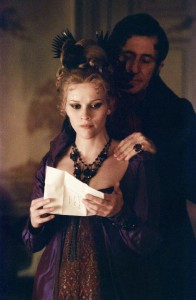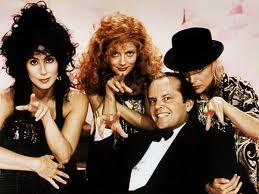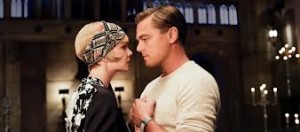The book was better… or was it?
Recently, I’ve shared a couple of film-related posts on social media, expecting them to get a comment or two. Both had to do with film adaptations of well-known novels and have incited spirited discussions, not surprising, I guess, given that many of my friends are quite passionate about both art forms. At the heart of the controversy is the issue of fidelity: how closely must a movie version of a book resemble its source material in order to be considered a “successful” adaptation? Which details of plot, character, and physical surroundings are crucial, and which are superfluous?
For me, that depends on a variety of factors. One of my all-time favorite book-based movies is Mira Nair’s 2004 Vanity Fair, which differs from the original most notably in its view of its anti-heroine, Becky Sharp. Thackeray’s Becky isn’t just a social climber; she’s practically a sociopath, and possibly a murderess as well. Nair’s Becky, brilliantly portrayed by Reese Witherspoon, is no prize, yet at times, she’s so charming as to be almost sympathetic. Modern viewers (especially female ones) may well find themselves wondering if, had they been young, pretty, well-educated, and poor in 19th-century England, would they have settled for a governess’ position or jumped at the chance to marry a gorgeous, potentially wealthy person from a much higher social class? Don’t answer right away, give yourself a moment to think about that one! Most of the film’s other characters are depicted so much like their printed counterparts that it’s as if they leaped from the page. The notable exception is Lord Steyne; in the book, he’s as physically unattractive as he is morally reprehensible. In the Nair film, he’s… Gabriel Byrne. To my eyes, Byrne is incredibly handsome, yet his looks make his excellent portrayal of Steyne all the more wonderfully evil. Nair’s liberties don’t detract from Thackeray’s story; they enhance it. The outstanding cast, stunning visuals, beautiful score, and intelligent script make Vanity Fair a satisfying film despite its departures from the novel, or in some cases, because of them.
So when doesn’t a book make a good movie? For me, it’s when what appears on the screen resembles the novel in name only. The most egregious example that comes to mind is the 1987 film version of John Updike’s The Witches of Eastwick. I read Updike’s book several times in high school and adored it, so when I heard it was coming to the big screen, I was ecstatic. The cast included Jack Nicholson, Cher, Susan Sarandon, and Michelle Pfeiffer, all of whom I admire tremendously. Sadly, I despised almost every moment of the film. Why? For one thing, over-dependence upon special effects. In the novel, the, um, regurgitations that the stodgy Felicia Alden begins experiencing are subtle at first, so much so that she believes she’s going mad rather than actually spitting up feathers and other debris. Related scenes in the film are so graphic that they don’t even deserve to be called slapstick. Worse, though, for me was the fact that the film was set in the present day rather than in the late 1960’s, as the novel had been. As such, the women’s experiments with witchcraft were taken out of context. Unlike their literary counterparts, they weren’t dabbling in an occult sort of feminism; they were merely under van Horne’s spell.
Tomorrow night, my book club is going to see Baz Luhrmann’s adaptation of F. Scott Fitzgerald’s The Great Gatsby. We just re-read the book in preparation and are planning to discuss both over wine and snacks later in the evening. As a longtime Luhrmann fan, I have high hopes, despite some reviews I’ve read.
What makes the movie version of a book succeed or fail for you?
Tags:book, Cher, F. Scott Fitzgerald, film, Gabriel Byrne, Jack Nicholson, John Updike, Michelle Pfeiffer, Mira Nair, movie, novel, Reese Witherspoon, Susan Sarandon, Thackeray, The Great Gatsby, The Witches of Eastwick, Vanity Fair








One Response to The book was better… or was it?